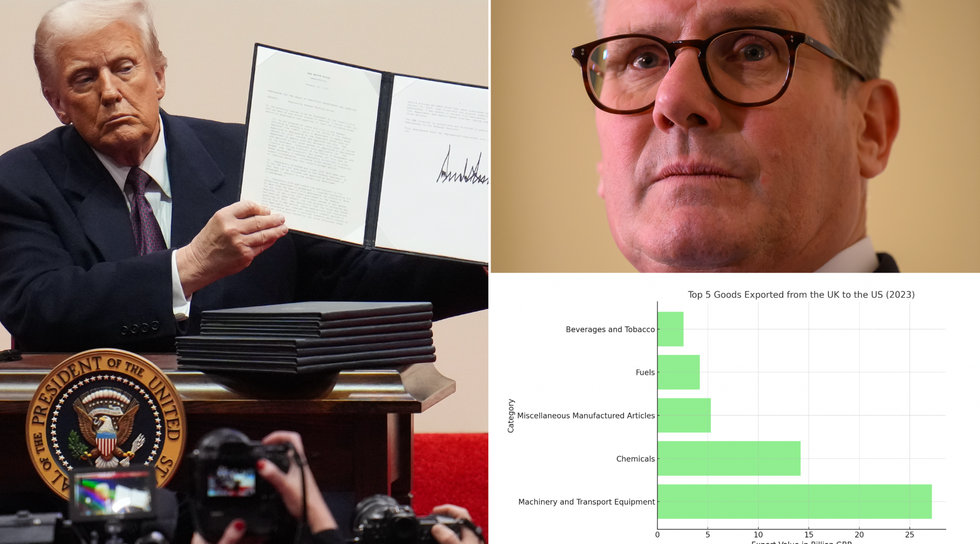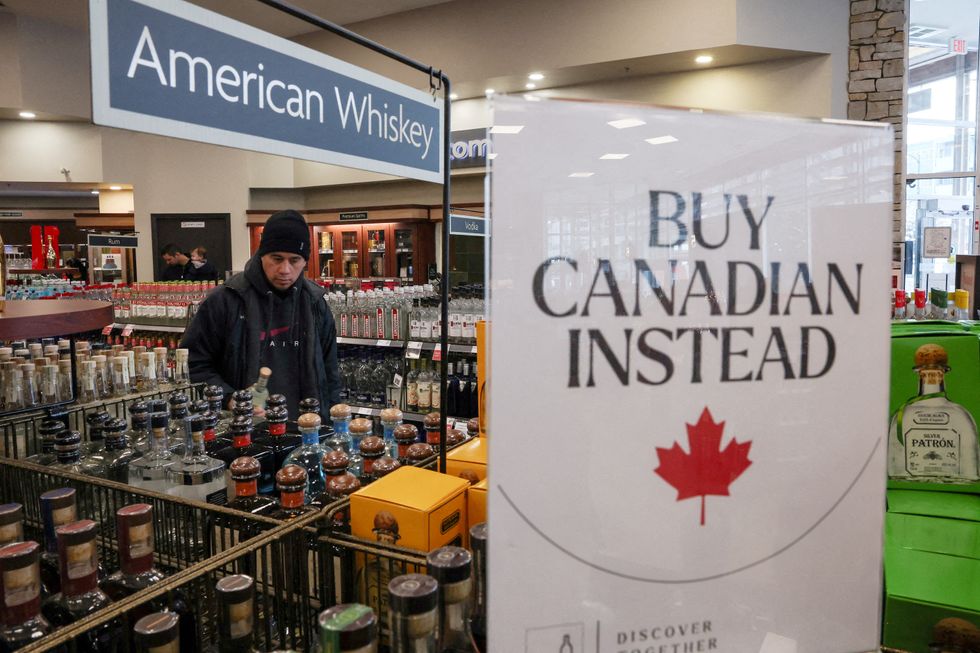Donald Trump has ratcheted up tensions with his three biggest trading partners by slapping 25 per cent tariffs on imports from Canada and Mexico and adding 25 per cent levies on China.
So far, he has not announced punitive measures against Europe, but countries like Germany run large trade deficits with Uncle Sam, so they are in the firing line.
The 47th President has also spared Britain for now, but Keir Starmer’s move towards greater realignment with the bloc has analysts wondering whether Blighty will be dragged into a US-EU trade war.
How badly would Britain suffer in a trade war with Trump?
Trump’s mercantilist instincts are driven by the perceived unfairness of countries flooding America with goods but not returning the favour.
Hence the reason why Canada, China and Mexico have got such a raw deal – all three countries run large trade deficits with Uncle Sam.
The UK, on the other hand, does not.
In 2023, the UK had a trade surplus of £71.4billion with the US in goods and services, which increased to £72.1billion in the 12 months ending June 2024.

With trade worth over £300billion flowing across the Atlantic every year, Britain would feel the impact of Trump’s tariffs
Getty Images/ChatGPT
However, with trade worth over £300billion flowing across the Atlantic every year, Trump’s mooted plan to slap universal tariffs of 10-20 per cent on all US imports would still have a seismic impact on the UK.
Critical industries would be hobbled, the latest available data from the ONS shows.
As of 2023, the United Kingdom’s top five goods exported to the United States were:
- Machinery and transport equipment
- Chemicals
- Miscellaneous manufactured articles
- Fuels
- Beverages and tobacco
Miscellaneous manufactured articles, which encompass a range of products, including professional and scientific instruments, with exports valued at £5.3billion.
Despite efforts to green Britain’s economy, the UK exported £4.2billion worth of fuels to the US that year, which includes refined petroleum products.
The export market for beverages and tobacco is not to be sniffed at either, with staples such as whisky, totalling £2.6billion.
Hidden in these eye-watering numbers are the millions of jobs these industries provide.
Machinery and transport equipment employs 2.4 million employees alone.
LATEST MEMBERSHIP DEVELOPMENTS
- Could Starmer be forced to resign? Labour facing ‘1979 wipeout’ as PM accused of Covid breach
- ‘The Home Office made me an offer many hoteliers could not refuse – but I know the truth about migrant hotels’
- Starmer did NOT win over leave voters! Labour facing Brexit bloodbath as shallow victory EXPOSED

Trump’s 25 per cent tariffs will leave 2.4 million Canadian jobs exposed
REUTERS
This is followed by the industry for miscellaneous manufactured articles, which has 1.1 million employees.
The fuels, chemicals, beverages and tobacco industries employ 50,000, 150,00 and 200,000, respectively.
It’s hard to assess how many jobs would go as a result of Trump’s tariffs but Canada offers some grim projections.
The Macdonald-Laurier Institute (MLI), Canada’s national public policy think tank, found that in addition to shrinking the economy by two to three per cent, Trump’s 25 per cent tariffs will leave 2.4 million Canadian jobs exposed.